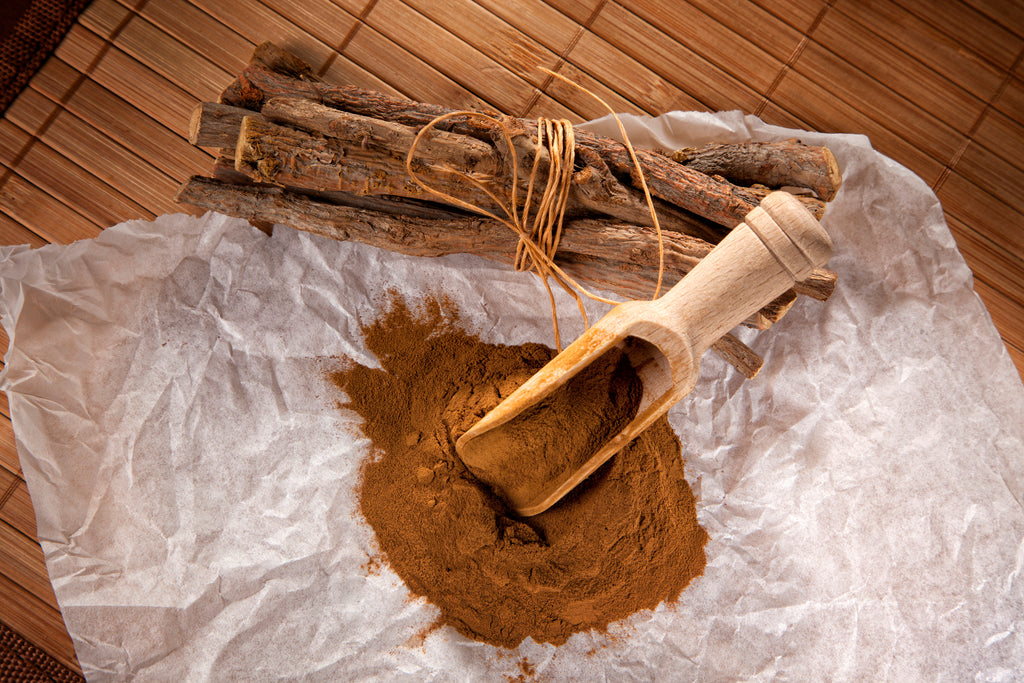SOURCE — 2 min
Categories: All | Healthy Living
The Difference Between DGL and Regular Licorice Root

What is DGL, and how is it different from regular licorice root?
 DGL is short for deglycyrrhizinated licorice. DGL licorice root is a regular licorice root that has been processed to remove glycyrrhizin, sometimes called glycyrrhizic or glycyrrhetinic acid. Glycyrrhizin is a component of licorice that is known to cause side effects such as blood pressure and electrolyte dysregulation, including elevated sodium levels and decreased potassium levels. [2] Removing glycyrrhizin helps ensure safety, minimize potential side effects, and make it safer for people with blood pressure issues.
DGL is short for deglycyrrhizinated licorice. DGL licorice root is a regular licorice root that has been processed to remove glycyrrhizin, sometimes called glycyrrhizic or glycyrrhetinic acid. Glycyrrhizin is a component of licorice that is known to cause side effects such as blood pressure and electrolyte dysregulation, including elevated sodium levels and decreased potassium levels. [2] Removing glycyrrhizin helps ensure safety, minimize potential side effects, and make it safer for people with blood pressure issues.
Why does it matter that the glycyrrhizin is removed?
DGL is safer than regular licorice root, particularly for people with blood pressure issues, as glycyrrhizin can affect blood pressure homeostasis. Glycyrrhizin can cause other side effects such as electrolyte imbalance, and particularly increased sodium and decreased potassium levels. [2] DGL, with the glycyrrhizin removed, does not pose a risk of affecting blood pressure in individuals with irregular blood pressure. [3] Also, unlike regular licorice root, DGL does not cause electrolyte imbalance, so sodium and potassium levels remain normal.
Is DGL safe?
DGL is safe. Serious adverse effects such as hypertension, electrolyte imbalance, and low potassium levels may occur with regular licorice root, but not with DGL. [4] DGL is also safe for those with high blood pressure, as the glycyrrhizin has been removed.Is DGL only for the gastrointestinal system?
While historical uses of licorice have included the support of respiratory and other systems, gastrointestinal support and maintenance are the most common use today.
How can DGL help me?

DGL has been used for centuries to support gastrointestinal health. DGL may help soothe, support, and maintain healthy mucous membranes in the gastrointestinal tract. It may also help maintain and soothe oral mucus membranes [5], as well as healthy esophageal membranes. [6] Additionally, it may help soothe and maintain healthy gastrointestinal mucous membranes, including the duodenum, and may help support and maintain healthy gastrointestinal function. [7, 8]


